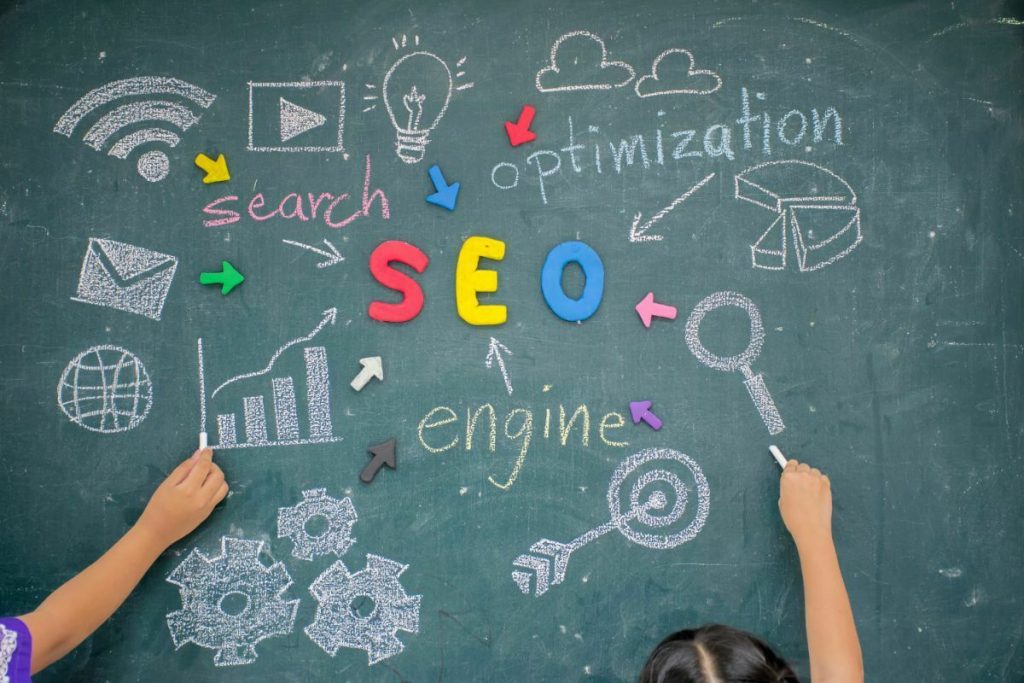Expanding your business internationally is an exciting and lucrative opportunity. However, achieving success in global markets requires more than a strong product or service—it demands a website optimised for visibility and performance across different countries and languages. International SEO is the key to unlocking global markets or growing your ecommerce business internationally by ensuring your website ranks in multiple regions and delivers a localised, high-quality customer experience that resonates with diverse audiences.
At Yellowball, we specialise in helping businesses navigate the complexities of international SEO, multi-language SEO, and country-specific SEO. This comprehensive guide covers everything you need to know, from benefits to challenges, best practices, and actionable strategies for success.
Why International SEO is Critical for Global Expansion
International SEO goes beyond traditional SEO practices, tailoring strategies to optimise your website for multiple regions and languages. This ensures that your brand remains visible, competitive, and relevant in global markets.
What is international SEO?
SEO stands for Search Engine Optimisation. In layman’s terms, it refers to the process of optimising your website to increase its chances of ranking higher in search engine results. The higher your website appears in the rankings, the more likely you are to be clicked on by users, and the more likely you are to have a higher conversion rate of users to customers. Pretty straight forward.
Stick the word ‘international’ in front of it, and the optimisation process takes on a specific aim. Instead of simply trying to rank higher in SERPs (search engine result pages) for general keywords – for example, ‘seo agency’ – your SEO strategy is deliberately aimed towards targeting audiences across the globe. These audiences are made up of individuals grouped together either by a common language or location.
The Business Benefits of International SEO
- Expand Your Market Reach
With International SEO, your website becomes accessible to millions of potential customers worldwide, allowing you to tap into new revenue streams and diversify your customer base. - Enhance User Experience Through Localisation
Tailoring your website content for specific languages, cultures, and preferences builds trust and fosters deeper connections with local audiences. - Strengthen Your Global Brand Presence
A well-optimised international website positions your brand as a global authority, increasing credibility and customer loyalty. - Drive Targeted Traffic
International SEO ensures your website appears in localised search results, driving qualified leads who are more likely to convert.
How to Define Your International Markets
Effective International search engine optimisation begins with understanding your target markets. Expanding globally isn’t just about reaching new audiences—it’s about reaching the right audiences.
Steps to Define Your International Markets:
- Market Research: Analyse demand for your products or services in different regions using tools like Google Trends and SEMrush.
- Competitor Analysis: Study how competitors perform in your target markets and identify gaps you can fill.
- Audience Insights: Understand cultural, linguistic, and economic differences that may impact user behaviour.
Example:
A luxury ecommerce retailer expanding into France, Germany, and Japan would need tailored content for each market, accounting for language, currency, and cultural buying habits.
How to Implement International SEO: A Step-by-Step Approach
1. Choose the Right URL Structure
The structure of your website affects how search engines and users perceive your site. Here are the three primary options:
Country Code Top-Level Domains (ccTLDs):
Example: yellowball.fr or yellowball.de
- Pros: Builds trust with local audiences and sends clear signals to search engines about country targeting.
- Cons: Requires separate domains, higher costs, and independent SEO efforts for each site.
Subdomains:
Example: fr.yellowball.com or de.yellowball.com
- Pros: Easier to manage under a single domain; allows geotargeting via Google Search Console.
- Cons: May not inherit full domain authority from the root domain.
Subfolders/Subdirectories:
Example: yellowball.com/fr or yellowball.com/de
- Pros: Consolidates domain authority and is cost-effective.
- Cons: May not resonate as strongly with local users compared to ccTLDs.
Yellowball’s Recommendation:
The best URL structure depends on your goals, budget, and target audience. For streamlined management and SEO benefits, subfolders are often the most practical option.
2. Install a Content Delivery Network (CDN)
A CDN stores copies of your website content on servers across multiple regions, ensuring faster load times for users worldwide.
- Why It Matters: Page speed is a crucial ranking factor. Slow websites frustrate users and lead to high bounce rates, which can negatively impact SEO.
3. Conduct Market-Specific Keyword Research
Keyword behaviour varies significantly across regions and languages. Direct translations won’t suffice—you need localised research.
How to Approach Keyword Research:
- Use tools like Ahrefs, SEMrush, and Google Keyword Planner to identify high-traffic terms in each market.
- Focus on user intent. For instance, the same product might be searched as “trainers” in the UK and “sneakers” in the US.
4. Localise Your Content
Localisation involves adapting content to meet the cultural and linguistic nuances of a specific region.
What to Consider:
- Language: Hire professional translators or native speakers to avoid inaccuracies.
- Imagery: Use visuals that resonate with local audiences.
- Cultural Preferences: Align your tone, style, and messaging with the target culture.
- Pricing: Reflect local currencies and economic factors.
Example:
A skincare brand entering South Korea should emphasise K-beauty trends and prioritise ingredients popular in the region.
5. Use hreflang Tags
Implement hreflang attributes to help search engines understand the language and region of your content.
Why It’s Crucial:
Hreflang prevents duplicate content issues by ensuring users see the most relevant version of your site.
6. Optimise Internal Links
Internal linking should guide users to content in their preferred language or region. For example, links on a German-language page should only direct users to other German-language content.
7. Avoid Automatic IP Redirects
Redirecting users based on their IP address can result in a poor user experience. Instead, use a language or country selector menu to give users control.
8. Build Local Backlink Profiles
Earning backlinks from authoritative sites in your target countries boosts your credibility and improves local rankings.
Tips for Building Backlinks:
- Partner with regional influencers or bloggers.
- Get featured in local publications or directories.
- Engage in community-driven content initiatives.
Challenges of International SEO
Expanding your digital presence or e-commerce website globally is an exciting opportunity, but it comes with unique challenges. Successfully implementing International SEO requires navigating complexities that can vary significantly across regions. Here are some key challenges to consider:
1. Managing Multiple Sites
International SEO often requires managing separate sites or sections tailored to different countries or languages. For instance, you might operate a U.S. website, a French site, and a Japanese one, each with its own content, language, and SEO strategy. This can be time-consuming and resource-intensive, particularly for smaller businesses with limited teams.
You’ll need to ensure consistent quality across all versions, manage frequent updates, and avoid duplicate content issues while maintaining a clear brand voice globally. Tools like CMS systems with multilingual support (e.g., WordPress Multilingual Plugin) and automation can help streamline the process.
2. Cultural Norms and Sensitivity
Whether you’re expanding into the UK, the USA, Australia, South Africa, or countries in Europe, it’s essential to recognise that cultural differences extend beyond language. Missteps in understanding local customs, humour, or even imagery can alienate your audience or, worse, offend them. For example, an ad campaign that resonates in the U.S. may fail in Japan if it does not align with Japanese cultural values of modesty and formality. To avoid these pitfalls, conduct thorough research on each target market and collaborate with local experts who understand regional nuances.
3. Navigating Legal Requirements
Each country has unique legal frameworks for data privacy, advertising, and e-commerce. For instance, the GDPR in Europe mandates strict user data handling, the USA’s Federal Trade Commission (FTC) Act requires transparent disclosures especially for endorsements and influencer partnerships, and the UK’s Consumer Rights Act 2015 sets strict rules for product descriptions, pricing information, and consumer rights for returns and refunds. Failure to comply can result in penalties or restricted site access. Partnering with legal advisors and ensuring your website meets region-specific compliance requirements is critical to mitigating risks.
Best Practices for International SEO
Implementing International SEO requires a meticulous approach to ensure your business or ecommerce website performs optimally across multiple regions and languages. Here are some essential best practices to follow:
1. Use One Language Per Page
Keep each page on your website dedicated to a single language. Mixing multiple languages on one page confuses both search engines and users, leading to a poor user experience and diluted SEO performance. For instance, a French user visiting your site should find an entirely French-language page rather than a mix of English and French.
2. Test, Monitor, and Iterate
International SEO and country-specific SEO isn’t a one-time effort. Regularly analyse your site’s performance using tools like Google Analytics and Search Console. Monitor key metrics, such as organic traffic, bounce rates, and keyword rankings in each target region, and adjust your strategies based on insights.
3. Prioritise Mobile Optimisation
Mobile internet usage dominates globally, particularly in emerging markets, making it critical for country-specific SEO. Ensure your website is fully responsive and optimised for mobile devices. Fast load times, a clean interface, and intuitive navigation are critical for retaining users and improving search rankings.
4. Build Local Trust Signals
Local trust signals like customer reviews, region-specific contact information, local certifications, and testimonials can significantly enhance user confidence. For example, displaying a local phone number or address can make your site more appealing to users in a specific country.
5. Implement Structured Data Markup
Using structured data, such as schema markup, helps search engines better understand your content. Country and language-specific schema (e.g., location, pricing) can improve your site’s visibility in local search results.
6. Create a Country and Language Selector
Provide users with an easy-to-use language or country selector. This improves the user experience and allows visitors to navigate to the most relevant version of your site effortlessly.
7. Optimise for Local Keywords
Go beyond direct translations and perform keyword research specific to each region. Remember to research and use local terms and phrases that resonate with your target audience.
Examples of International SEO Success
1. IKEA
IKEA, a globally recognised home furnishings brand, excels in International SEO by offering country-specific websites with localised content, language options, and pricing. For example, IKEA’s German website showcases products, promotions, and delivery options that align with the preferences and needs of the German audience. Their use of ccTLDs like ikea.de and ikea.co.uk enhances trust and visibility in local search results.
2. H&M
H&M uses a subfolder structure (hm.com/us, hm.com/uk) to organise its multilingual and multinational websites. This approach consolidates domain authority while providing localised content for fashion trends, promotions, and customer service. Their precise implementation of hreflang ensures that users land on the right version of their site, enhancing user experience and reducing bounce rates.
3. Booking.com
Booking.com is a leader in the travel industry and serves users in over 40 languages. Their International SEO strategy includes region-specific subdomains, localised currency options, and personalised user experiences based on location. They also utilise hreflang tags to ensure search engines serve the correct language and regional pages, making their site a go-to platform for travellers worldwide.
4. The BBC
The BBC uses subdomains (bbc.com/spanish, bbc.com/arabic) to target audiences worldwide. Their International SEO strategy includes localised news content, multimedia resources, and region-specific stories that resonate with their global audience. Their seamless use of hreflang tags ensures that users in different regions access the appropriate language version of their site.
5. Apple
Apple employs a subfolder strategy (apple.com/us, apple.com/jp) to provide a localised experience in each country. Their sites adapt not only to language but also to product availability, pricing, and promotions tailored to each region. Apple’s meticulous implementation of International SEO enhances their global brand authority while meeting regional needs.
FAQs
What is International SEO, and why is it important?
International SEO is the process of optimising your website to rank on search engines in multiple regions and languages. It ensures that your website is visible to users across different countries and delivers a localised, exceptional customer experience tailored to their needs. This is critical for global businesses looking to expand their reach, improve user engagement, and drive higher conversion rates in diverse markets.
What are the main challenges of multilingual SEO?
The key challenges of multilingual SEO include maintaining cultural sensitivity, preventing duplicate content, and implementing technical elements like hreflang tags. Missteps in translation or localisation can alienate users, while poorly optimised URL structures can confuse search engines.
What is the best URL structure for country-specific SEO?
The ideal URL structure depends on your international SEO goals. ccTLDs (example.co.uk) offer strong local trust, while subdomains (uk.example.com) or subfolders (example.com/uk) are cost-effective and easier to manage.
How does PPC complement an International SEO strategy?
PPC (Pay-Per-Click) advertising complements International SEO tactics by driving immediate traffic to your site while your organic rankings grow. With localised PPC campaigns, you can target specific keywords, audiences, and countries to gain visibility faster.
Why Yellowball is Your Go-To International SEO Partner When Expanding into the UK
At Yellowball, we understand the intricacies of international SEO and global web development. With considerable experience with international brands in all industries, our SEO consulting services ensure your business is optimised for success in the UK.
Expanding your digital presence globally is a complex but rewarding endeavour. With International SEO, you can connect with new audiences, build brand recognition, and drive conversions on a global scale.
At Yellowball, we combine cutting-edge technology, tailored strategies, and a passion for excellence to help businesses achieve their international aspirations. Whether you need a bespoke website, an optimised SEO strategy, or digital marketing support, we’re here to help.
Ready to take your business into the UK market? Contact Yellowball today and let’s make it happen.
Read more: Guide to Technical SEO









